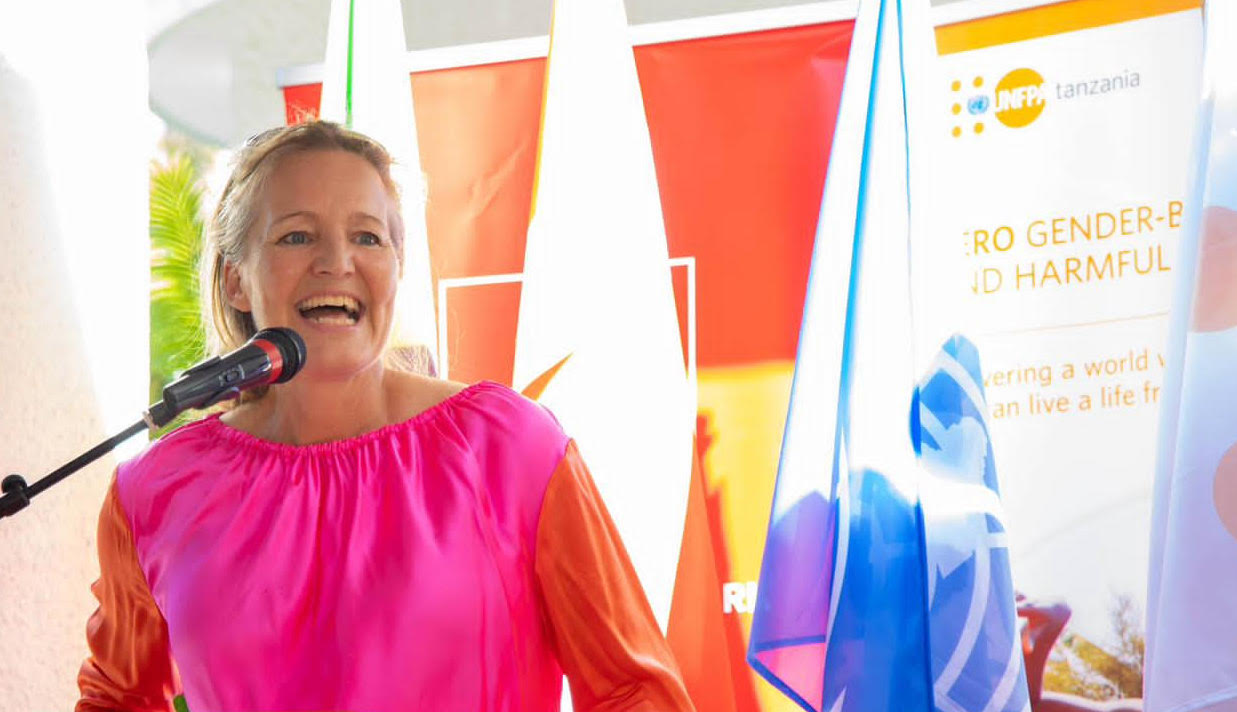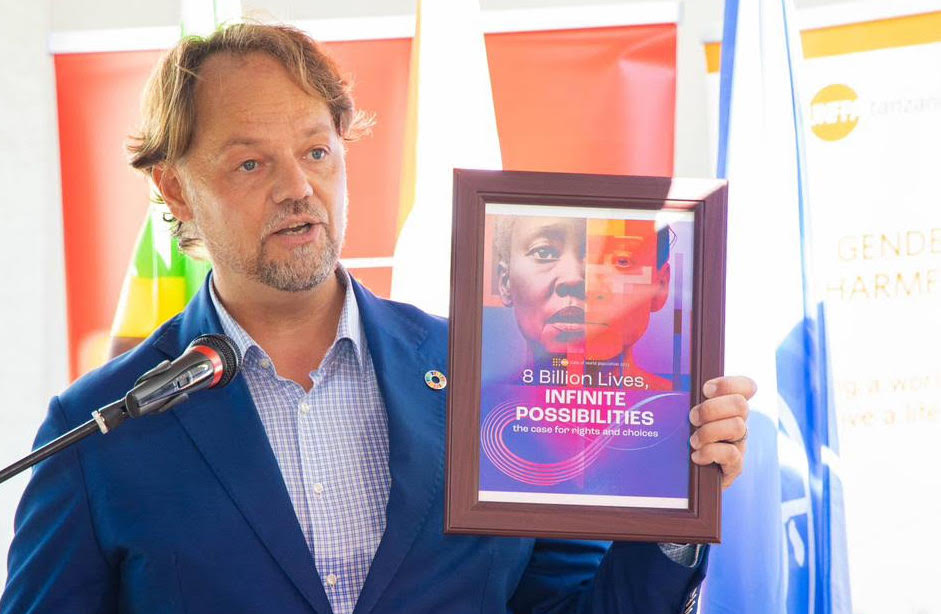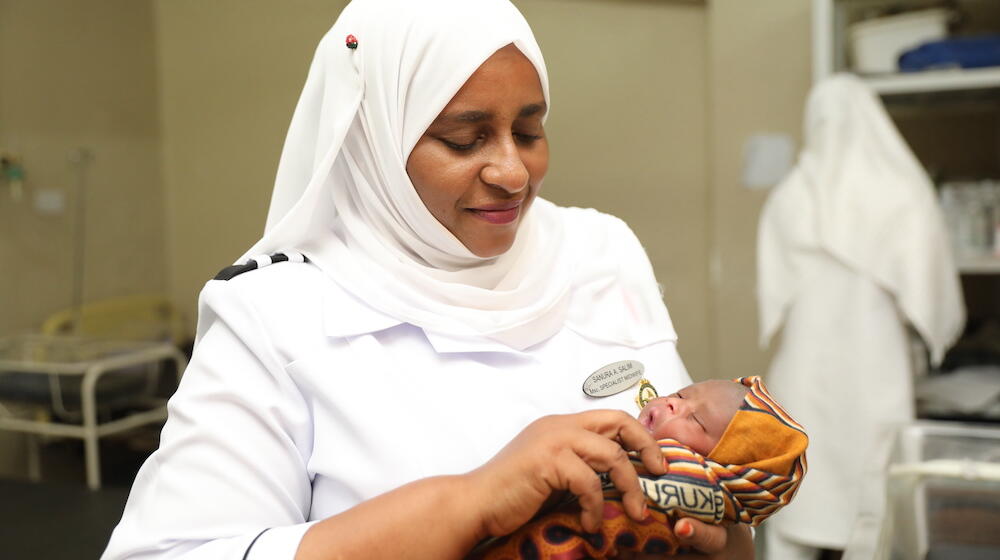DAR ES SALAAM, United Republic of Tanzania – In her 25 years as a midwife, Sanura Abdulla Salim has observed what can happen when women deliver several babies in succession without a break. Back-to-back pregnancies can be hard on women’s bodies, and she has seen two patients die as a result. And for women from families of limited means, the economic pressures of caring for many children can be intense.

“It is stressful for a mother to find food and money to provide security for the family,” said Ms. Salim, a midwife at Mnazi Mmoja Hospital in Stone Town, Zanzibar. When counselling women on family planning, she advises that contraception does not mean an end to reproduction. It’s a pause, until they’re ready to have another baby.
Around 2.15 million babies are born in Tanzania each year. The United Republic of Tanzania’s population is growing fast, and over the next three decades, the country will be one of eight representing more than half the increase in global population. As the population grows, more specialized midwives are needed to increase the number of safe births and family planning options. They support women not only through pregnancy and childbirth, but also in deciding if and when to expand their families.
Amid these demographic changes, upholding the sexual and reproductive health and rights of women and girls is key to ensuring that Tanzania’s communities can thrive. UNFPA has trained midwives to provide mothers with an array of sexual and reproductive health care, including pre- and postnatal check-ups, skilled assistance during childbirth and information about birth control.

Building demographic resilience
Resilience can be enhanced in the face of challenges, including climate change, by strengthening sexual and reproductive health, rights and choices, said Ambassador of Denmark Mette Nørgaard Dissing-Spandet at a recent gathering to address the challenges and innovative solutions for population growth and climate change in Tanzania. She emphasized the significance of sexual and reproductive health and rights in the well-being of women, men, and young people. This also has a positive impact on families and societies as a whole.
At the event, co-hosted by the Royal Embassy of Denmark in Tanzania and UNFPA, the United Nations sexual and reproductive health agency, UNFPA launched its flagship State of World Population 2023 report, 8 Billion Lives, Infinite Possibilities: the case for rights and choices.
With the global population surpassing 8 billion people last year, and individuals living longer and healthier lives, the report acknowledges the prevailing concerns around population trends. It emphasizes the importance of empowerment through the provision of rights and choices for all individuals. The question at hand is not merely about numbers but about enabling individuals to make their own reproductive choices, thereby recognizing the positive economic and social benefits of sexual and reproductive health and rights.

Responding to evolving needs
Mark Bryan Schreiner, UNFPA Representative for Tanzania, said UNFPA remains committed to fostering partnerships with the Government of Tanzania, as well as with younger and older generations, to address the evolving needs of the population through innovation and solutions.
Recognizing Tanzania's youthful population structure and the increasing longevity and well-being of Tanzanians, the immense potential of the country's dynamic youth population was emphasized. Empowering young people and striving to achieve a demographic dividend are key objectives, entailing investing in employment, education, and health, particularly reproductive health and rights, to capitalize on the opportunities for socio-economic growth.
The Nordic countries have been crucial partners in UNFPA programming worldwide. In Tanzania specifically, UNFPA receives support from all Nordic countries to further its mission of ensuring that every pregnancy is wanted, every childbirth is safe, and every young person's potential is fulfilled.
The event served as a platform for stakeholders from various sectors to collaborate and explore innovative approaches to address the interconnected challenges of population growth and climate change. By prioritizing the provision of rights and choices for all individuals, Tanzania can pave the way for a prosperous and sustainable future.


